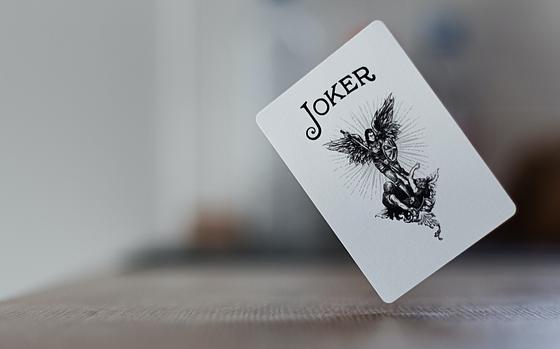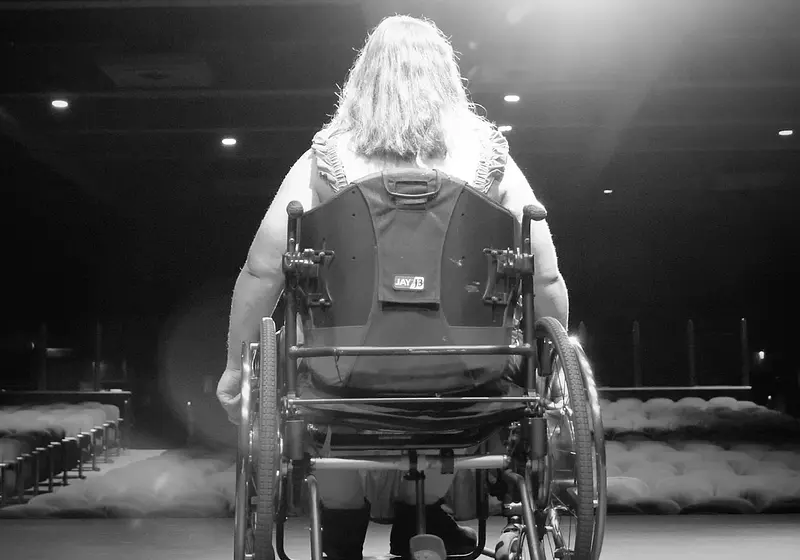The biggest challenge for Hollywood has always been and will always be inclusivity. Most people will tell you that the movie industry is for the elite: the richest, the most glamorous, and those with the biggest names.
As we continue to progress as a society, people are actively trying to change Hollywood's myopic, stringent, and largely out of date “rules” to make it an industry for all. Although some improvements have been made, it's still not enough.
The mainstream film industry has frequently focused on the able-bodied, neurotypical character. The largest, box-office-breaking Hollywood films consistently feature this character type. Very rarely do we see disabled characters on screen (especially in lead roles), and this is the same for people with neurological disorders.
Thankfully, the industry has started branching out and exploring mental illness, but even this has a long way to go, with many films depicting mental illness in a debilitating and horrifying light such as Darren Aronofsky's Black Swan and M. Night Shylamalan's Split.
Let us slide into your dms 🥰
Get notified of top trending articles like this one every week! (we won't spam you)What Is Ableism?
Unfortunately, there is a common theme for characters with mental illnesses and neurological disorders: the actors that play them are often neurotypical. This means that they do not have any neurological disorders, and often do not suffer with the mental illnesses they portray.
Although acting is all about portraying all kinds of characters, this acting trope takes roles away from people who are neuroatypical, who might suit the role better. The performance done by a neurotypical actor will not be as accurate, and communities affected may not connect with the character.
This is where ableism comes in. Ableism is defined as “discrimination in favour of able-bodied people”. Unfortunately, even in 2020, this is still a very real and very pressing issue.
Just like racism, ableism discriminates against a minority. It is unjust, cruel, and not a behaviour that should be carried forward into the future.
If a director gives a role to a neurotypical actor because they didn't want to give it to a neuroatypical actor, that is discriminatory and an example of ableism.
However, sometimes the director has to cast a neurotypical actor for that kind of role for safety reasons. This is the case with The Joker.

Image Credit: Quentin Rey from Unsplash
The Joker is played by neurotypical actors because someone with The Joker's severe mental illnesses might not be able to distinguish acting from real life and pose a danger to themselves and others.
However, with “lighter” roles, neurotypical actors are not always the best choice, as they may not be able to portray the characters quite right.
This was the case with Forrest in Forrest Gump and Edward Norton in Fight Club. Their characters were criticized for being exaggerated, comedic, and inaccurate.
Sometimes, affected communities might feel offended or that they're being made fun of. Because a lot of films paint mental illness in a horrible light, they might also feel like a villain, which can be a really damaging thought.
Characters like Michael Myers from Halloween and Terence Fletcher from Whiplash are perfect examples of characters who are mentally ill villains.
Perhaps if we had more characters who functioned well with mental illnesses and were portrayed as good people, the illustration would not appear so one-sided.
Music: Sia's New Film
More and more people are getting fed up with the lack of representation of minority communities in modern film, and I know I am always looking to see who will be brave enough to take the right steps towards inclusion.
When I found out that revolutionary pop artist Sia was going to be releasing a film in 2021 with an autistic lead role, I was both relieved and excited.
Sia's popularity meant she had a really strong voice to deliver such an important message of inclusivity to the masses.
It also meant that an autistic actor or actress would have their moment to shine and do their community proud. Then I did my research.
I, like many others, did not react well to the news.
Instead of using an actress with autism to portray the lead role, Sia is instead using Maddie Ziegler, her famous “mini me” and Dance Moms star. Maddie is a close friend of Sia and appears in a number of her music videos like Chandelier and The Greatest. While she is an incredibly talented and dedicated dancer, Maddie is neurotypical. Because of this, both the autistic community and many of Sia's fans have made it clear that she is not fit to play an autistic role.

Image Credit: David Hofmann from Unsplash
The Big Issue
People have started to accuse Sia of being ableist. This is quite an accusation to make, but does it have any truth?
This is hard to tell. For Sia to be ableist in this context specifically, she would have had to not consider casting an autistic person for the role at all, and instead jump straight to casting Maddie. Sia has actually admitted that she tried to cast an autistic actress for the lead role of 'Music', but the actress found it too stressful.
Could she have taken more time to cast another autistic actress? Perhaps. It seems very unlikely that the singer has any plans to change anything now.
Toxicity on Twitter
It's safe to say that the pop star hasn't been gentle on Twitter about the whole ordeal. After releasing the film's trailer and instantly getting floods of backlash, Sia took to Twitter to show her frustrations.

The comments under this Tweet were certainly mixed. Whilst you should never judge a book by its cover, it becomes difficult not to when such a pressing issue is being illustrated right in front of your eyes.

Sia presented that issue in her film's trailer, and due to the severity of the issue, it got people talking. It will take a lot of work to resolve it.


The most outlandish Tweet of them all, however, came from Sia's response to an autistic Twitter user who criticized her casting choice. Sia's response is short, sharp, and cruel.

Although the singer made it clear that the film features “thirteen neuroatypical people” and “three trans folks”, it almost feels like it's a distraction or a bargain for the main issue.
Of course, it is brilliant to have this kind of diversity in a film, but if the autistic community -- the community that the director is trying to represent with the lead character -- says that you haven't got that role right, it doesn't provide much hope for the rest.
Take the Quiz: Which Indian city is the perfect holiday spot for you!?
Let's match you with an Indian city that you would love!
Should I See The Film or Not?
Everyone's stance on this movie and its morals, messages, and aims will be different. You might see it as a light-hearted film focused on music, love, and adventure. Just a piece of fiction to enjoy like any other film.
Or, you could see it as something more: a homage to autistic and neuroatypical people directed by someone who has assigned herself with a high social responsibility to portray her characters accurately.
The trailer could have angered you and caused you to speak up. Good, use your voice. However, you might not see what all the fuss is about.
This movie's trajectory into the mainstream media seems catastrophic to me.
For a director that has spent three years researching this film and has still angered and upset so many members of the autistic community, it makes me wonder just what she researched and if she took the time to get the opinions from the people that matter most here: the community she is trying to represent.
Do Your Research

Image Credit: Firmbee.com from Unsplash
If you think this movie will be great and that the flaws presented are not that much of an issue, I implore that you make sure you know all the angles. Spend some time doing your research and maybe even engage with members of neuroatypical groups to get their stances on the topic.
The people affected will always understand the issues presented better than those who aren't, so it's always useful to learn from them.
If the trailer of this movie or the ideas of the movie itself do not seem right to you, take to social media to amplify your voice. You will not be alone. However, still do your research. Make sure what you say reflects what you think, but is also based on facts.
Hollywood still has a long, long way to go before we get the inclusivity in film that we so desire, but I haven't lost hope and neither should you. Always try to encourage creative enterprises and the growing industry professionals to tackle this problem and make a stand. Who knows — one day that person might be you!













